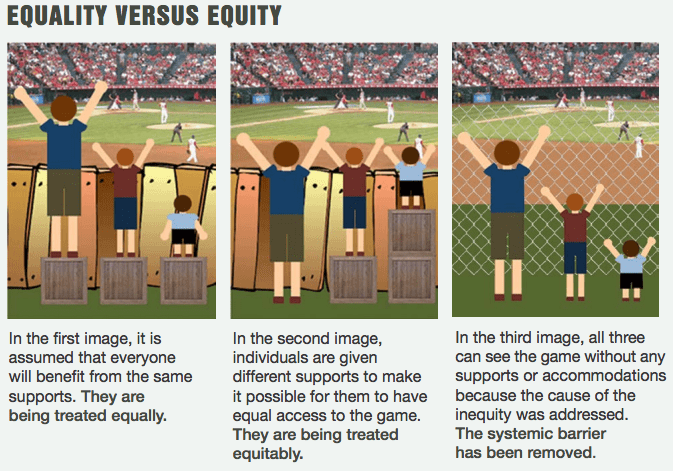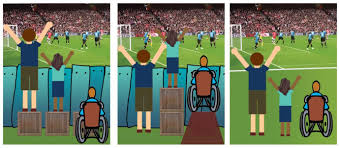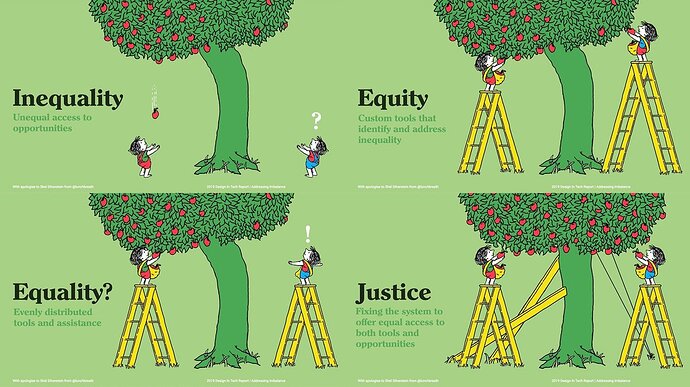Trees are make equal by cutting them down and making them into lumber. If all humans are different why do we strive for equality? Shouldn’t we strive to embrace people for who they are, not change everything so it is all equal? Its political but these issues impose themselves on us and we need to know how to deal with them!
Please clarify whether this force of change is from a societal or Buddhist point of view.
These issues are popular in society. They have become political footballs. So yes it affects societal change. I however think the only way to answer them is in a buddhist context. Answer any question truthfully and it tends to be in line with what the buddha reported as true. The reason they are hot potatoes is because they are not answered in the right context. So yeah, I think it’s both. You could say a buddhist view point on societal topic. The force is actually from seeing as clearly as we can muster and then trying to express the truth as clearly as possible. If it was a beta second rate reasoning then it wouldn’t have any force as your human nature would reject it. For monastics there has to be a clear distinction between these topics and their influence but as lay people it is our responsibility to at least discuss these issues. Im not asking monastics, I’m asking lay people. If these things are not managed then society can encroach on spirituality. There are plenty of examples throughout history of the buddhism that is so enriching for our lives been made illegal or flattened because authorities decide it messes with their ability to control the public. You can ignore and try to flattern out these conversations but one day the ideologies that need control might impose their views on you. Then you better hope your practice is strong enough to withstand forces that will try to compromise you choices. Monsters hide in the dark but if you shine warmth and light on them they lose there ability to scare. So if we say what we think is true on these subjects and puncture their potency then people may feel comfortable discussing these issues. Im guessing people are scared which is understandable but hiding and yielding to it is not wise. Say the truth, stay loving and the consequences are more likely to be in line with truth and based around love.
One should develop complete disillusion about society or large crowd, remain convinced that they won’t have what you are seeking for.
One should develop complete acceptance to society or large crowd at the same time, remain genuine respect for their struggles for happiness.
Equanimity*? Embracing people for who they are is a tricky one. That mired web of personhood wrapped up in a suit of skin ![]() Our actions, or whatever perception of them is cognized, are usually what stick and define our personhood. Someone can commit heinous crimes, but they are fond enough of their mothers to write sweet poems about them. Where’s the Truth?!
Our actions, or whatever perception of them is cognized, are usually what stick and define our personhood. Someone can commit heinous crimes, but they are fond enough of their mothers to write sweet poems about them. Where’s the Truth?!
Anyways, just some thoughts on the matter. And… since this is a Buddhist forum, maybe a sutra reference?
One who conceives ‘I am equal, better, or worse,’
Might on that account engage in disputes.
But one not shaken in the three discriminations
Does not think, ‘I am equal or better.”
I hope that quoting worked out. I’m not keen on how that functions.
I think the people who seek equality (race, gender, economics, sexual orientation, physical/mental abilities etc…) only want to be treated with respect and compassion.
These aspirations are not driven by politics, but the suffering they face day to day. Yes, some people might politicize these issues, but that doesn’t mean those issues aren’t real or valid.
People seek equality in the way they are treated and the opportunities available to them.
As a Buddhist lay person I would think an important aspect of developing our compassion is not turning a blind eye to those issues.
‘This act with the body ( …speech / mind ) that I want to do leads to hurting myself, hurting others, or hurting both. It’s unskillful, with suffering as its outcome and result.’ To the best of your ability, Rāhula, you should not do such a deed. But if, while checking in this way, you know: ‘This act with the body that I want to do doesn’t lead to hurting myself, hurting others, or hurting both. It’s skillful, with happiness as its outcome and result.’ Then, Rāhula, you should do such a deed.
SuttaCentral
That is the wrong way to go about for freedom and happiness, is it not?
Well… ultimately to get off the wheel of samsara, yes 
But this topic is based on a lay life and a social context, if I am understanding the OP correctly.
Let’s say I trip on some ice and get paralyzed. Am I wrong to ask for wheel chair access or accessibility accommodations if my society has the funds to provide it? Isn’t that a compassionate thing to do? Or do we as a Buddhists expect I daily crawl up the stairs ? Or Should I be denied medical care by my employer or government if I was born with a congenital disease?
Maybe the way to ensure that we embrace people for who they are (or could be) is to give them equal opportunities to develop their potential?
Yes, and I think that the emphasis should be on “could be”. Many of these arguments hinge on what criteria one uses do decide between, for example, job candidates. Do you just use simplistic criteria like academic grades, or do you take into account other qualities and potentials that will enhance the organisation?
I think that’s really valid Mike. The “could be”, “potentials” and “enhance” concepts are the Buddhist part, where we understand that individuals and organisations and society are not something that is a fundamentally fixed, but mutable.
And there’s also the simple fact that some of these things are better for an organisation. For example, we have an under-representation of women (and minorities) teaching physical sciences and engineering. We make an effort to hire more women partly with the selfish motivation of encouraging more female students into our areas…
Yes. Indeed. I was just thinking about same sex adoption in the UK which was allowed only about 20 years ago. Around 9-10% of all adoptions in the UK now involve same sex couples, that’s many hundreds of kids who have been brought up in stable family homes that would otherwise not be. That’s a good thing for society.
The Catholic church got an exemption from the government so they could continue to discriminate in their adoption procedures - oh well, you can’t win 'em all.
For topics in such a theme, if you open the envelope to peek the details, you already are set up on grasping. Many social causes, they all smell rather similar.
You get to see, you are putting forth your comfort and peace in others’ hands.
You can’t yourself get comfort and peace, how odd to think others’ can do it for you.
There is no need to deny comfort if it is readily available to you. But to fight for what not here, is a lost opportunity to seek wisdom.
Human realm at the moment, is sort of short in life span. It is very tough to get insight before our life force is out. I think human realm can be glorious in time when we have life span 1k or longer. Now it is just we learned a bit, before we can be very good at it, we die.
There are many types of equality and not all of these should be strived for.
Equality in the Dhamma is necessary in that one should see others as oneself because that is a requisite condition for awakening to the truth & it’s final attainment.
We have to treat others well in order to treat ourselves well and if we treat others badly we are hurting ourselves.
When one doesn’t take the mind or the body as oneself then it doesn’t occur ‘I’m a woman’, ‘I’m a man’, ‘I am’ ‘I am good’, ‘I am bad’ or ‘I’m anything at all’.
It is said that as long as these occur one is influenced by wickedness and on the accounts of greed, anger or delusion will treat another & oneself unjustly.
This kind of identification with it’s subsequent discrimination serves as a justification for creating suffering for oneself and for another.
One comes to think things like ‘I am good’ and ‘They are bad’.
One extols oneself and talks down another.
When seeing bad qualities of another one furthermore uses it as a justification for punishing with no fear of it hurting oneself because they are supposedly different.
This punishing cultivates more cruelty.
With that one hurts oneself & another, one might come to see one’s own bad qualities which will promt self-loathing & mortification because loathing & punishment have become the inclination of the mind.
Even worse is when at the breakup of the body cruelty directs the mind to hell.
Being the same doesn’t mean that they are equal. Like a tall old tree and a young tree are the same but are not equal, the big tree might have flowers & fruit and be used to make many nice things whereas a young or a sick tree isn’t all that.
If a tree was to produce poison to kill it’s kind with no means of protecting itself then they would all perish.
If a tree made fertilizer or whatnot that was a support for it’s kind then they would all flourish.
If man creates poison that kills people who are same but not equal then he will also die from it. It’s the same with wicked mental qualities, they are like poison.
SN 22.49 - With Sona
excerpts;
“When any ascetics and brahmins, on the basis of feeling … on the basis of perception … on the basis of volitional formations … on the basis of consciousness—which is impermanent, suffering, and subject to change—regard themselves thus: ‘I am superior,’ or ‘I am equal,’ or ‘I am inferior,’ what is that due to apart from not seeing things as they really are?
…
When any ascetics and brahmins do not, on the basis of feeling … on the basis of perception … on the basis of volitional formations … on the basis of consciousness—which is impermanent, suffering, and subject to change—regard themselves thus: ‘I am superior,’ or ‘I am equal,’ or ‘I am inferior,’ what is that due to apart from seeing things as they really are?
All forms are subject to conditions. When due to form and conditions, the result is suffering - then the Buddha instructs we should have compassion.
Ultimately the ‘escape’ involves relinquishment from everything arisen, but this doesn’t negate the need for compassion and kindness in this very life, for self and for others. In fact, through the operation of Sila and compassion, one progresses along the Path, so it can be seen as a fundamental part of the journey to ultimate Liberation. 


Perhaps it’s more useful to frame this discussion in terms of equity, access, justice and fairness rather than ‘equality’. The images below are a good way to help understand the issues and show why our differences matter.


I wish there was a “I love this so much I want to dance” button.
I completely agree.
Being equal does not mean being identical. This is the fallacy of the OP reference
Rather, I would say that in my garden there are ornamental bushes, vegetables, flowers, grass, trees… and yes, also weeds.
Knowing that each of them has their place, I care for each one individually with compassion for their unique needs. Weeds bind unused soil, but they need to be kept in check. They deserve the same kind of mindful attention we give the flowers.
These are a really good set of cartoons. I think you can take it further though. In the images peoples object of attention is a sports game or access to requisites. Im not trying to diminish the value of these things but if their object of attention was correct then no-one could say put a fence between them and their happiness. If their object was their own heart and minds and the wealth that can give then they will always have the closest access to that treasure trove.
I must still reference though that physical barriers dividing people could also be addressed. I just know I can only do my bit. I guess people make their own choices.


